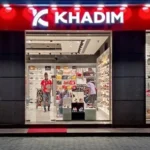Founded by Baba Ramdev and Acharya Balkrishna in 2006, Patanjali Ayurved has emerged as a household name in India—offering Ayurvedic medicines, FMCG goods, personal care and wellness products. The company extends its reach through various franchise models, including Mega Stores, Chikitsalaya, Arogya Kendra, and Gramin Arogya Kendra, each tailored to specific investment levels and serving diverse consumer segments.

Franchise Options & Investment Overview
1. Patanjali Mega Store
- Store Size: 2,000–5,000 sq ft in prime retail zones; typically ≥2,000 sq ft minimum.
- Investment Required: ₹1 crore to ₹2 crore covering interiors, signage, shelving, inventory, and setup.
- Security Deposit: Refundable ₹5 lakh, split between Divya Pharmacy & Patanjali Ayurved.
- Location Constraints: Must be ≥2.5 km from existing Mega Store in metro cities (3.5 km in non-metros) and ≥1 km from Chikitsalaya/Arogya Kendra outlets.
- Support: Patanjali assigns a vaidya (Ayurvedic doctor) at the store; franchisee must provide medical instruments and basic amenities like washroom, seating, and drinking water.
2. Patanjali Chikitsalaya
- Area: Typically 500–750 sq ft, combining retail and consultation space.
- Investment: ₹7 lakh to ₹14 lakh (includes setup and initial inventory).
- Security Deposit: ₹1 lakh refundable.
- Ideal for urban or semi-urban locations near residential areas or healthcare hubs.
3. Arogya Kendra
- Area: About 300–500 sq ft.
- Investment: ₹5 lakh to ₹7 lakh.
- Security Deposit: ₹25,000 refundable.
- Designed for health and personal care retail in smaller towns or neighborhoods without medical consultation.
4. Gramin Arogya Kendra
- Area: 150–250 sq ft.
- Investment: ₹2.5 lakh to ₹5 lakh.
- Security Deposit: ₹10,000 refundable.
- Tailored for rural markets with basic retail and wellness offerings.
Additional Setup Costs & Breakdown
| Franchise Model | Investment Range | Area (sq ft) | Security Deposit |
| Mega Store | ₹1–2 crore | 2,000–5,000 | ₹5 lakh |
| Chikitsalaya | ₹7–14 lakh | 500–750 | ₹1 lakh |
| Arogya Kendra | ₹5–7 lakh | 300–500 | ₹25,000 |
| Gramin Arogya Kendra | ₹2.5–5 lakh | 150–250 | ₹10,000 |
These figures encompass interiors, shelving, POS, branding, inventory, and working capital buffers for operations.
Profitability & Return on Investment
- Profit Margins in Patanjali retail typically range between 10% and 25%, varying by format and product mix.
- Revenue Potential:
- Mega Stores may generate ₹5–10 lakh per month in smaller cities, and significantly more in major metros.
- Smaller formats (Chikitsalaya, Arogya Kendra) can earn ₹1–3 lakh monthly depending on location and footfall.
- Break-even Timeline ranges between 6 to 24 months, depending on the scale and efficiency of operations.
Enrollment Criteria & Application Process
- Financial Capacity: Must be able to fund the capital and maintain working capital until operations stabilize.
- Location: Own or rental space in high-traffic zones suitable for chosen format, meeting mandatory distance norms for Mega Stores.
- Documents: PAN, Aadhaar, address proof, publicity photos of location, rent or lease deed, passport-size photos, and sales registration copies.
- Alignment with Brand Values: Franchisees must commit to Patanjali’s ethos—promoting wellness and Ayurveda. For Mega Stores, belief in traditional Indian medicine and providing infrastructure for vaidya consultations is mandatory.
- Application Timeline: Typically processed within 2–3 months, depending on approval and store readiness.
Challenges & Considerations
- Location Restrictions for Mega Stores are tightly regulated, limiting expansion in dense markets.
- Product Exclusivity: Mega Stores can only stock Divya Pharmacy and Patanjali-certified products—no external brands allowed.
- Reputation Risks: Patanjali has faced legal scrutiny and court cases over misleading health claims and regulatory compliance. Franchisees should consider potential reputation risks.
- Operational Rigor: Combining Ayurvedic treatments, retail inventory, and medical staffing requires disciplined management.
Final Verdict
A Patanjali franchise offers a structured entry into India’s booming wellness-FMCG market. With investment options from ₹2.5 lakh to ₹2 crore, the model is scalable and caters to diverse entrepreneur profiles—from rural zone small-format operators to large-format metro investors.
If you have access to good retail space, financial capability, and alignment with Ayurveda-driven ethos, a Mega Store (₹1–2 crore) may offer high returns. For smaller investors or health-focused entrepreneurs, Chikitsalaya and Arogya Kendra offer low-risk entry with fast break-even.
Given the brand’s massive reach, local demand, and support ecosystem—coupled with strong margins and recurring customer base—a well-executed Patanjali franchise can be a profitable venture. However, due diligence on legal compliance and local reputation is essential.


